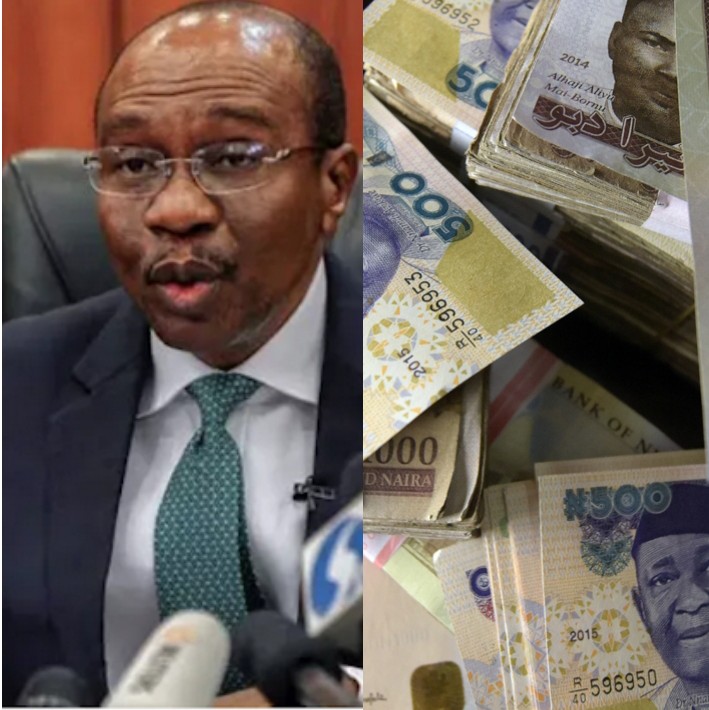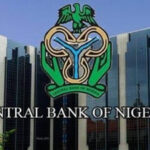Financial experts have advised the Nigerian government to extend the deadline for phasing out the old Naira currency notes for the new ones to circulate well in the market.
Governor of the Central Bank of Nigeria (CBN), Godwin Emefiele had last week Wednesday, October 26, 2022, announced that the bank would release redesigned Naira notes by December 15, 2022, and completely remove the old ones from circulation latest by January 31, 2022.
Join our WhatsApp ChannelThe Naira notes to be redesigned according to the CBN governor include N200, N500, and N1,000. Emefiele hinted that the exercise is a strategy to curb counterfeit notes in circulation and also hamper ransom payments to terrorists and kidnappers in cash. He also said that about 85 percent of the currency in circulation is being hoarded by Nigerians and urged the citizens to proceed to their banks to deposit their Naira notes.
This has attracted reactions from different quarters in the country. While some question the economic viability of such an exercise both in terms of the cost of printing the new Naira notes and the overall impact on the economy, others accuse the incumbent government of doing it for selfish political reasons as the 2023 elections draw closer.
In a business chat with journalists on Tuesday, at Ikoyi, the Group Managing Director of Afrinvest West Africa Plc, Mr. Ike Chioke, said the timing of the proposed currency replacement is wrong and not necessary at this time. He said it could have been better managed if the deadline was extended to at least one year.
“If we decided that we are going to change the currency in 2023 from January 1, to December 2023, everybody now has 12 months and banks will then begin to advertise it and it will just be within the ordinary cost of business.”
He added that there is also an attendant cost of logistics for the deadline to be achieved as according to him, the bank branches would be stressed.
Chioke also pointed out that the proposed Naira reissue seems to run contrary to the CBN’s cashless policy. He said since the COVID-19 pandemic disruption, many customers have learned to do more transactions online, making the volumes far outstrip the ones done by cash and cheques in the past.
Chioke further stated that the e-Naira introduced by the apex bank last year has further added impetus towards implementing the cashless policy.
“If you look at the total deposits of Nigerian banks combined, it is about N40 trillion but the total cash in circulation is just N3.2 trillion. That ratio is consistent with what other countries would have.”
He said that with the volume of electronic transactions far outstripping that of cash in circulation, it raises some concerns about why the CBN would want to focus on changing the Naira notes at this time.
Looking at the cost implications of the Naira notes redesign, the GMD observed that it has created an impact on foreign exchange, especially in the parallel market as the price of $1 has jumped by more than N100 since the announcement was made last week.
As of Wednesday, November 2, 2022, the price of the Dollar has risen from N700 to N850 within one week of the CBN announcing the new naira note reissue.
READ ALSO: 2 Governors In ‘Extreme Worry’ Over Naira Re-issue, Dollar Rate Hike
“For a country where a lot of its small traders are importing things to sell, obviously there is inflation they are going to import. So, if they were using N750 to convert to $1 to buy goods and now a week later, they have to now readjust that price to N850; it’s inflation they are basically importing, and such has big pressure on the economic system,” Chioke stated.
On his part, the Deputy Managing Director of Afrinvest, Mr. Victor Ndukauba said it is a normal thing for the government to once in a while reissue currency notes, but the timing of the current one proposed by the CBN is wrong. Ndukauba said the 90-day window period that the apex bank gave for the citizens to change their money to the new notes coupled with the Christmas Season and the upcoming election will create serious pressure on the economic system. He added that banks may be overwhelmed by the number of customers who besiege their branches within the period to make deposits, and perhaps, lead to long queues.

READ ALSO: Hoard The Naira Or Dollar?
“Due to the pressure it may cause, I feel that the CBN should have introduced the new currency notes alongside the old ones and gradually remove the old ones from circulation. That’s how they did in it England the last time their currency was changed. Injecting the old ones small, small, and gradually, removing the old ones, and with time the old ones will disappear from circulation,” Ndukauba stated.
He said if the government extends it to one year it would be easy and less stressful for the citizens.
The DMD observed that a lot of people in the informal sector still make use of cash in their daily transactions as many of them are yet to embrace the use of electronic channels for bank transactions. “Most of these informal people are still using cash because the cost of using regular banking channels is still very expensive for them.”
Victor Ezeja is a passionate journalist with seven years of experience writing on economy, politics and energy. He holds a Master's degree in Mass Communication.
















Follow Us